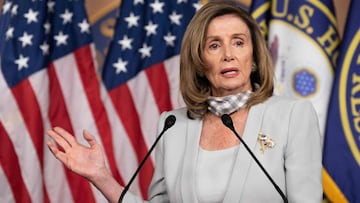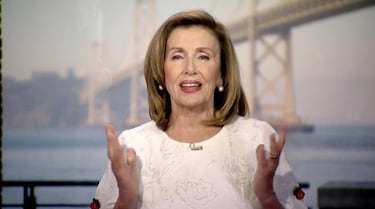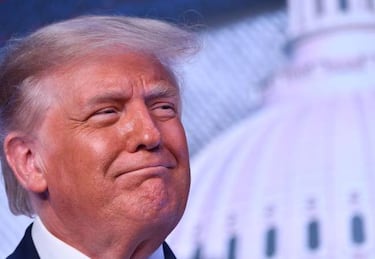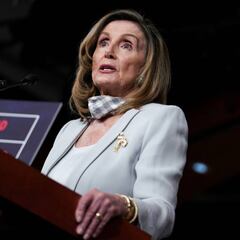Unemployment benefits: Why Pelosi has declined vote to extend $600 payments
Although she believes it is a "positve initiative", Democratic House speaker Nancy Pelosi has rejected calls to vote on extending the $600 federal unemployment benefit.

House speaker Nancy Pelosi has rejected calls from more than 100 Democrat lawmakers to push for legislation to expand the $600-a-week supplemental federal unemployment benefit.
The extra benefit had been approved under the coronavirus relief package, known as the CARES Act, back in March, but expired at the end of July. And with Congressional Democrats and Republican still at loggerheads over a new stimulus package, 114 Democrats signed a letter requesting that Pelosi to vote to extend unemployment benefits through a smaller relief package when the House returns on Saturday.
“We owe it to people waiting to get back to work across the country not only to extend unemployment benefits to help them pay their bills, but to tie these benefits to economic conditions so workers are not held hostage by another cliff like this one,” the representatives wrote in the letter dated Tuesday, 18 August.
On Saturday, the House is expected to pass legislation to provide $25 billion in funding for the USPS as the postal service provider prepares to handle the biggest mail-in vote in US presidential election history.
But the Californian congresswoman has rejected calls for a vote on extending the $600 federal jobless aid, telling PBS News that, although it was a “positive initiative”, the timing for the vote was wrong as Democrats try to negotiate other funding priorities with Republicans.

Pelosi: who would not want to extend unemployment benefits?
“That’s a very positive initiative. I have encouraged that, I have welcomed that suggestion,” Pelosi said during an interview on PBS NewsHour.
“I don’t think strategically it’s where we should go right now, because the Republicans would like to pass something like that and say forget about it … Forget about state and local [government funding], forget about our investments in stopping the virus, forget about other initiatives that feed the food insecure children in our country, vote by mail initiatives and the rest.”
“I don’t think the timing is for us to do it right now, because, imagine, the Republicans could take that into the Senate, put poison pills all over it. And it’s hard to vote against extending unemployment benefits,” she said.
“And, again, I think, overwhelmingly, our members — who would not want to extend unemployment benefits? As I say, it’s something I fully support, and the stabilization, but not necessarily in the negotiation.”
Trumps executive order on unemployment benefits

Senate Republicans and Democrats failure to come to an agreement on a new coronavirus relief package two weeks ago prompted President Donald Trump to sign an executive order that would see out-of-work Americans receive a supplemental federal payment of $300-a-week, while states would have the option of topping up that figure by $100 to bring it to $400 – in line with Republican proposals.
Trump’s extra unemployment benefit would last just five weeks
Under the executive order, the president has directed that $44 billion from the Federal Emergency Management Agency’s Disaster Relief Fund will be designated to cover the aid; the benefit will run until 6 December or until the $44 billion runs out, with experts estimating that the money would last for only about five weeks.
Unemployed workers will now be hoping that Congress can strike a deal on a coronavirus relief bill that will likely cover unemployment benefits as well as a second round of stimulus checks. But Democrats and Republicans are long way off reaching such an agreement, with both parties having very different perspectives and that the bill should be and how much should be spent on it.
Related stories
When the Senate returns after summer recess in September, lawmakers will make one last push to hammer out a deal before the end of the fiscal year on 30 September.
Live coverage of the coronavirus crisis
You can follow live, US-focused coverage of the coronavirus crisis with our dedicated live blog.

